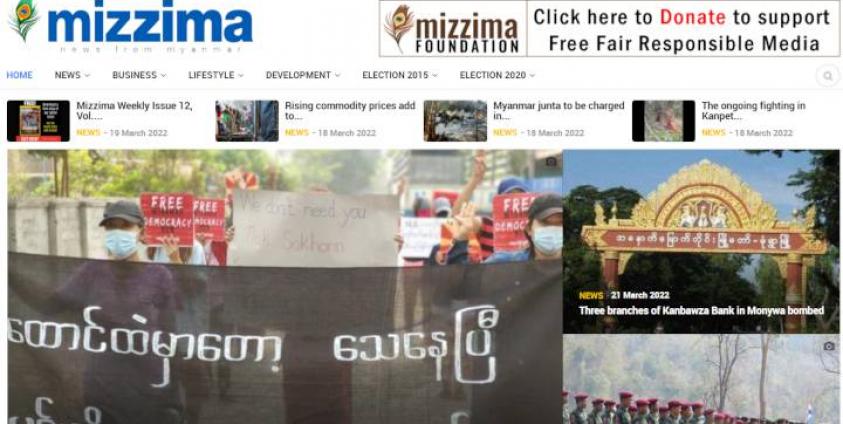Myanmar’s media is in dire straits over a year after the military coup. The military junta has clamped down heavily on “independent media” and journalists trying to tell the truth about the crisis.
Now there is a divide between media companies toing the junta line and those operating clandestinely trying to publish the truth – warts and all.
One of the moves made quickly by the junta in the wake of the February 2021 coup was to remove the licenses of several media companies, raid their premises and, in a number of cases, make arrests.
For the Myanmar media companies that have soldiered on – operating clandestinely in country and in exile – it has been a tough call.
But one of the strengths of these independent media efforts is the work of so-called “citizen journalists” or CJs that they rely on for some of their reporting.
Citizen journalism, also known as collaborative media, participatory journalism, democratic journalism, guerrilla journalism or street journalism, is based upon public citizens "playing an active role in the process of collecting, reporting, analyzing, and disseminating news and information."
The term is often used as a catch all for “non-professionals” or freelance rookie reporters who are working for free or getting paid for their work, on a story-by-story basis or possibly on a retainer, but typically scraping by.
On an international level, views about the skills and competence of what we refer to as citizen journalists vary, with questions over just how reliable reports from these rookie reporters can be.
But in Myanmar these reporters play an important role in helping publicize what is happening in the conflict-ridden country. And most, if not all, of these CJs are driven by the desire to get stories out and inform Myanmar citizens and the wider world about the crisis. It’s a labour of love.
Many of the reports that are published by such media houses as Mizzima, DVB and Irrawaddy are based on the clandestine work of CJs, who take considerable risks in collecting information and talking to sources and in sending their stories or reports to editors to be polished and published.
Some are relatively new to the field of journalism. Others are former staffers who are operating in a new and arguably more dangerous environment since the coup.
Since the military stepped in, over 130 journalists have been arrested and more than 40 are still being detained. Over 30 journalists are on a warrant list – on the run in the country or in exile - and three were unfortunate enough to be arrested and killed.
The risks are real. A number of CJs have been arrested for working for the independent media and sharing stories, photos or videos of protests or conflicts, and plunged into the horror of incarceration and potential torture.
Myanmar independent media respect the work of their “sources” in the field – CJs who provide a range of stories and input that help paint a picture of what is happening in crisis-hit Myanmar.
We owe the CJs a debt of gratitude. It is no exaggeration to say – given the experiences of those who have fallen foul of the Myanmar authorities – that many CJs face death, injury or imprisonment in their efforts to get the story out.







